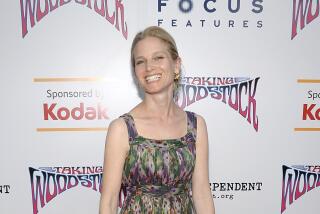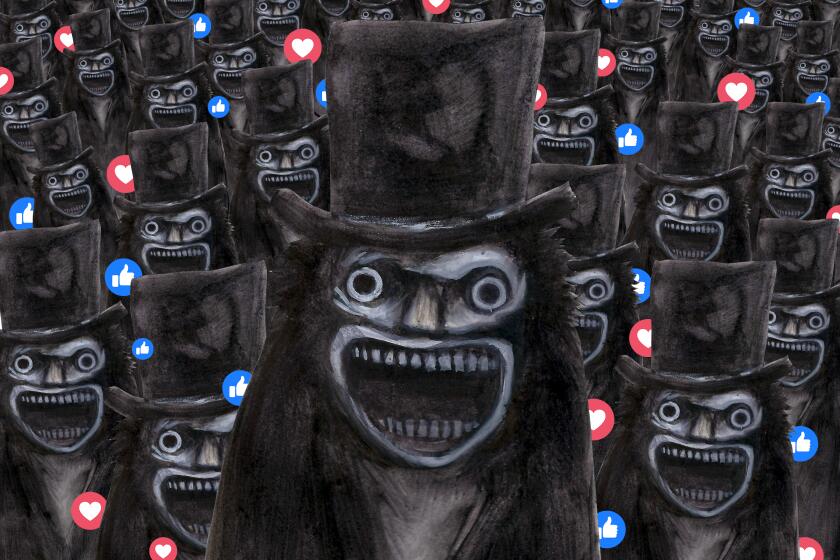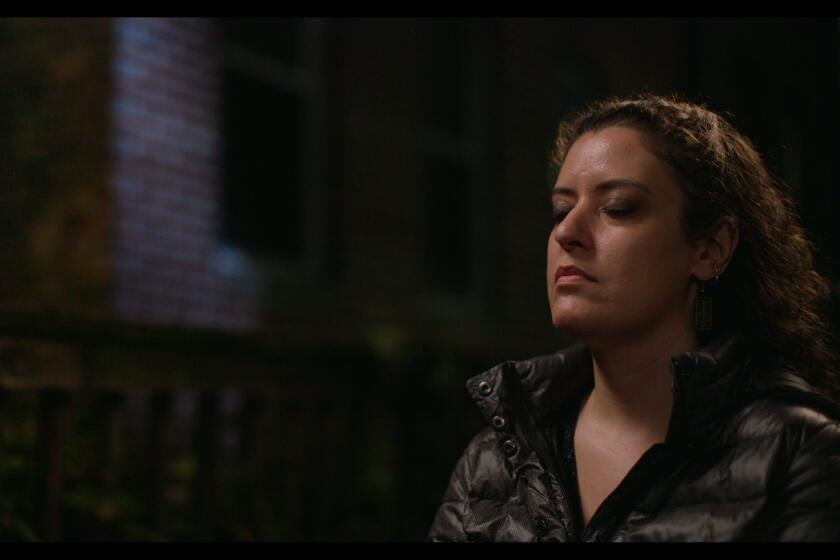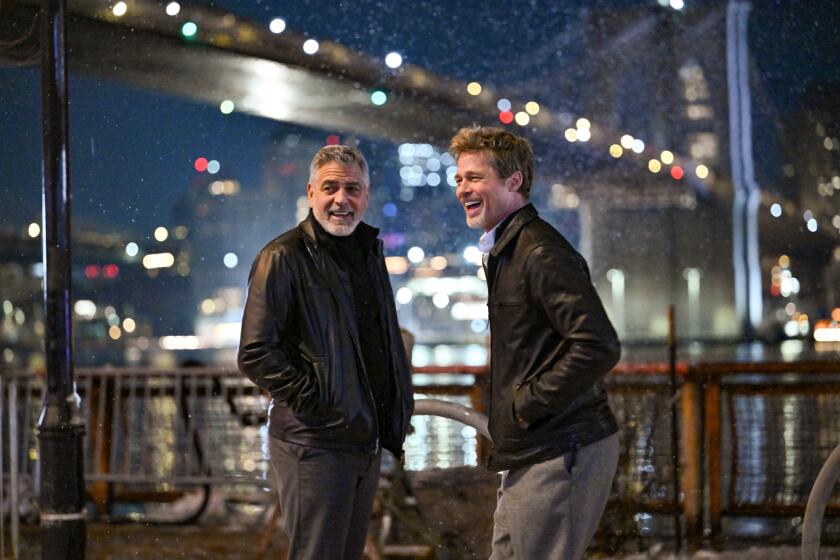Elvis Presley, the actor
Elvis Presley’s gifts as a singer, producer and arranger, as an interpreter of emotions, likely made a step toward acting seem part of a natural progression. But his stirring musical vision -- his daring and imaginative blend of country, pop, gospel, R&B and rock ‘n’ roll -- rarely found an analogous expression in the 31 narrative films he made in Hollywood.
Any consideration of Elvis movies must acknowledge that there are a lot of duds, lighthearted but workmanlike romps with such titles as “Tickle Me,” “Easy Come, Easy Go” and “Kissin’ Cousins” that Presley mugged his way through half-heartedly. All the danger, sex appeal and implicit rebellion of his early career was neutered or, at best, put into neutral by these shameless products, among the earliest instances of multi-platform branding and synergy whereby movies and records simultaneously promoted each other.
The conventional narrative of Presley’s life begrudgingly allows for the Hollywood era, when he was making roughly three pictures a year from 1960 to 1969, as a necessary low to set the stage for his triumphant reemergence in music with the television program now popularly known as his “ ’68 Comeback Special,” which led to his revival as a live performer until his death on Aug. 16, 1977.
Yet within his body of often-dismissed films there is a submerged narrative of unrealized potential and unexplored talent. Amid the flotsam are films with talented directors and actors in which Presley showed glimpses of startling sincerity and emotion, a true actor in the making.
The 75th anniversary of Presley’s birth on Friday provides an opportune moment to reevaluate and perhaps even celebrate his film career (also celebrating the occasion will be a Turner Classic Movies marathon on Friday and an American Cinematheque double feature Sunday).
For all the general thinking that Presley’s movie career was a dead end, the films have had an unexpected and surprisingly broad-reaching influence. Presley’s second movie, the 1957 Technicolor-bright “Loving You,” was a loose telling of his own rise to stardom and can be seen as a precursor to many subsequent pop star crossovers, perhaps most notably Prince’s “Purple Rain.” The 1968 film “Speedway” featured an odd bit of production design (cars used as restaurant booths) that was revitalized in 1994’s “Pulp Fiction,” and the 1968 soundtrack single “A Little Less Conversation” became a surprise hit after it was featured in the 2001 remake of “Ocean’s Eleven.”
When Presley began making movies in 1956 with “Love Me Tender,” it was with hopes to eventually achieve something of the dramatic emotionalism of James Dean and Marlon Brando. His last two films before entering the Army in 1958, “Jailhouse Rock” and “King Creole,” go a long way toward making that goal a reality, ranking as his most complete and fulfilling efforts even among those who otherwise dismiss his work.
Following the relative commercial disappointment of two essentially dramatic efforts, “Flaming Star” and “Wild in the Country,” and the success of the lightweight “Blue Hawaii,” his future in Hollywood was largely sealed.
A template for many of the films to follow, “Blue Hawaii” had Presley playing a young man who wants to be a tour guide rather than run his family’s pineapple plantation. His scenes with Angela Lansbury as his stubborn, intrusive mother again showcase Presley’s rough-hewn emotionalism and point toward what might have been had he pursued acting more seriously.
“Viva Las Vegas” (1964) is the only Elvis movie that understands itself as being an “Elvis Movie.” Directed by George Sidney, who also cast Ann-Margret, the star of his Elvis-parodying “Bye Bye Birdie,” the film has a kicky self-awareness missing from any of Presley’s other pictures. Yet Presley himself was no ironist, and so perhaps the “purest” Elvis movie is 1965’s insouciant “Girl Happy.” An innocent gloss on the beach movie, the film shows that Presley at half-speed still exudes more talent, charm and charisma than most performers.
Throughout the ‘60s, filming and soundtrack work often kept Presley from recording much additional music, so the main engine for his success began to slow. As Presley’s televised comeback special pointed toward a new beginning, his film career drew to a close with such oddball efforts as 1968’s bracingly mature sex farce “Live a Little, Love a Little” and 1969’s ersatz spaghetti western “Charro!”
His last fiction feature was “Change of Habit” (1969), seemingly a rough narration of his hit song “In the Ghetto.” It had Elvis playing an inner-city doctor who becomes involved with a nun (Mary Tyler Moore).
After Presley’s triumphant return to live performances in 1969, his last two films were concert documentaries, 1970’s “Elvis: That’s the Way It Is” (re-edited in 2001) and 1972’s “Elvis on Tour.” Both films show Presley at his full artistic maturity, highlighting the expansive, encompassing idea of American music that is inarguably his most valuable and lasting legacy.
Which is not to say that Presley gave up entirely on the idea of acting. In a 1969 news conference he noted, “I want to change the type of script I’ve been doing,” and in 1972 he expressed an interest in more dramatic movie roles, what he referred to as “a non-singing type thing.” Infamously, he was approached to play the part of an aging rock star in Barbra Streisand’s remake of “A Star Is Born” but no deal was ever reached.
Perhaps what makes Presley such a perfect pop star even all these years later is that for having made 33 theatrically released feature films in his lifetime, he is still somehow at once completely familiar and utterly unknowable. His film career leaves us with fixed images -- Andy Warhol’s iconic gunslinger Elvis comes from “Flaming Star” -- but also with open ideas and possibilities. A fundamental part of his career’s narrative, Presley’s time making movies only adds to the dynamic of his mystery and the enduring vitality of his talents.
More to Read
Only good movies
Get the Indie Focus newsletter, Mark Olsen's weekly guide to the world of cinema.
You may occasionally receive promotional content from the Los Angeles Times.










